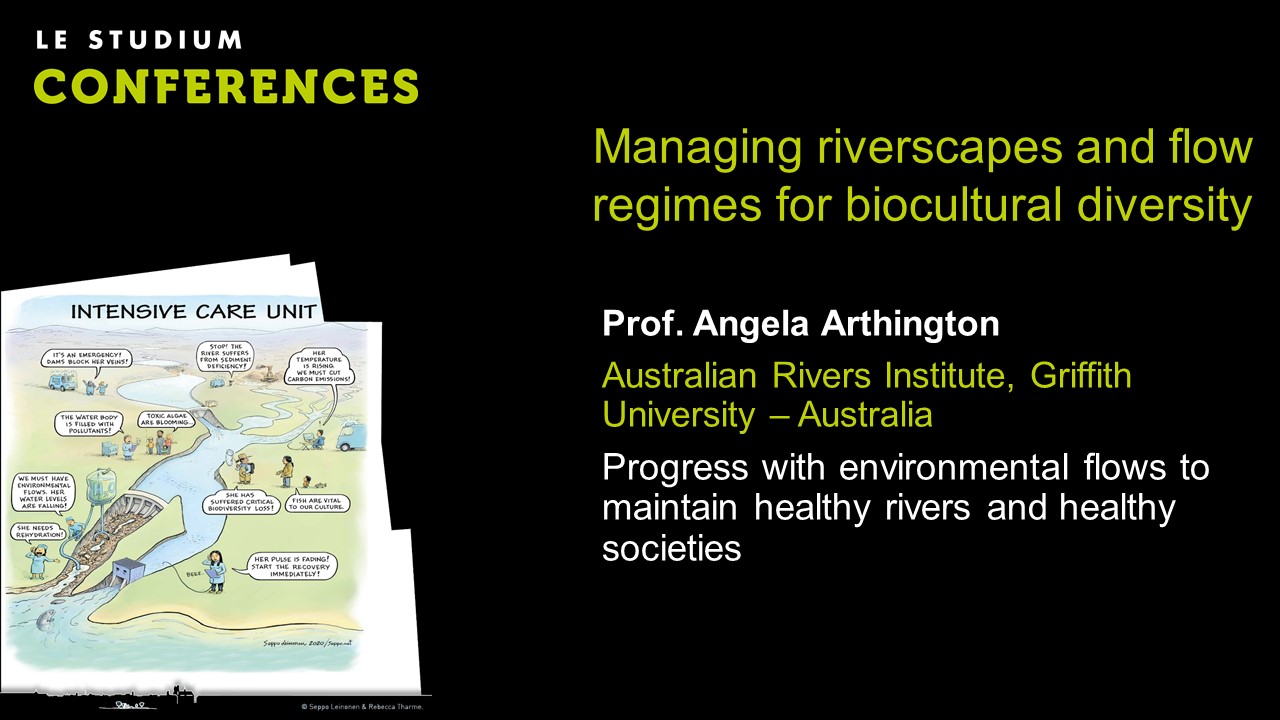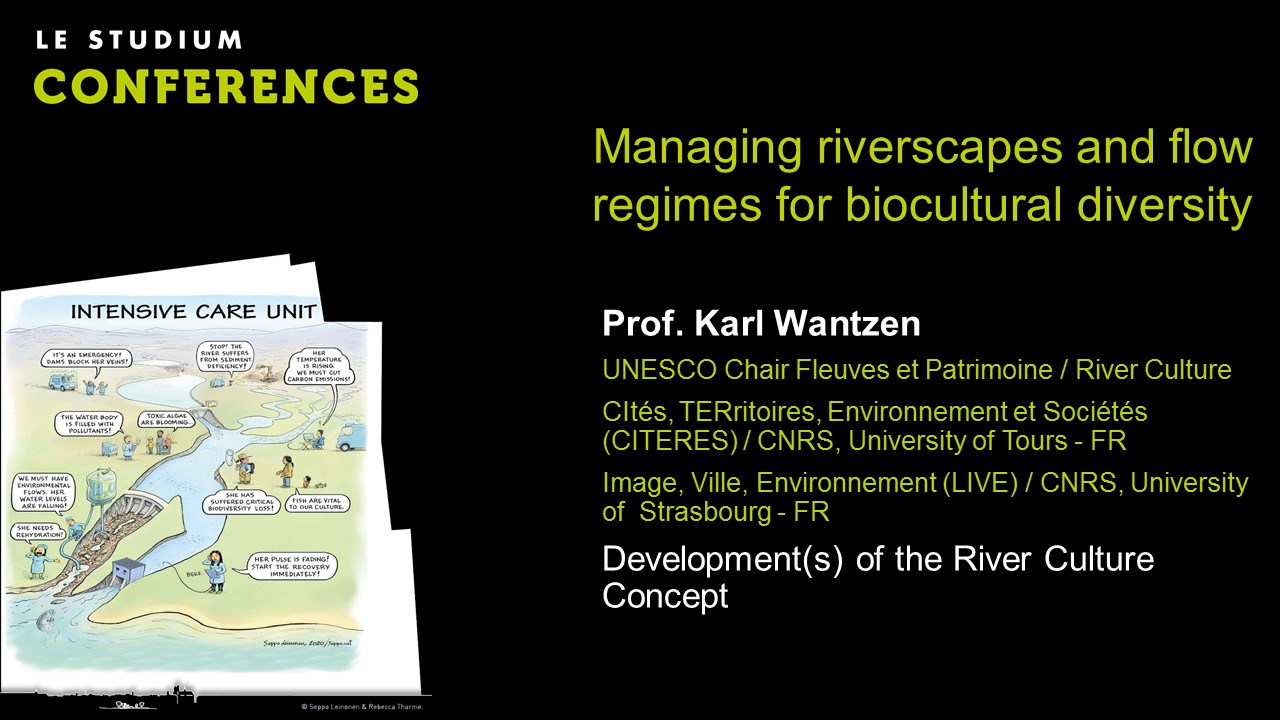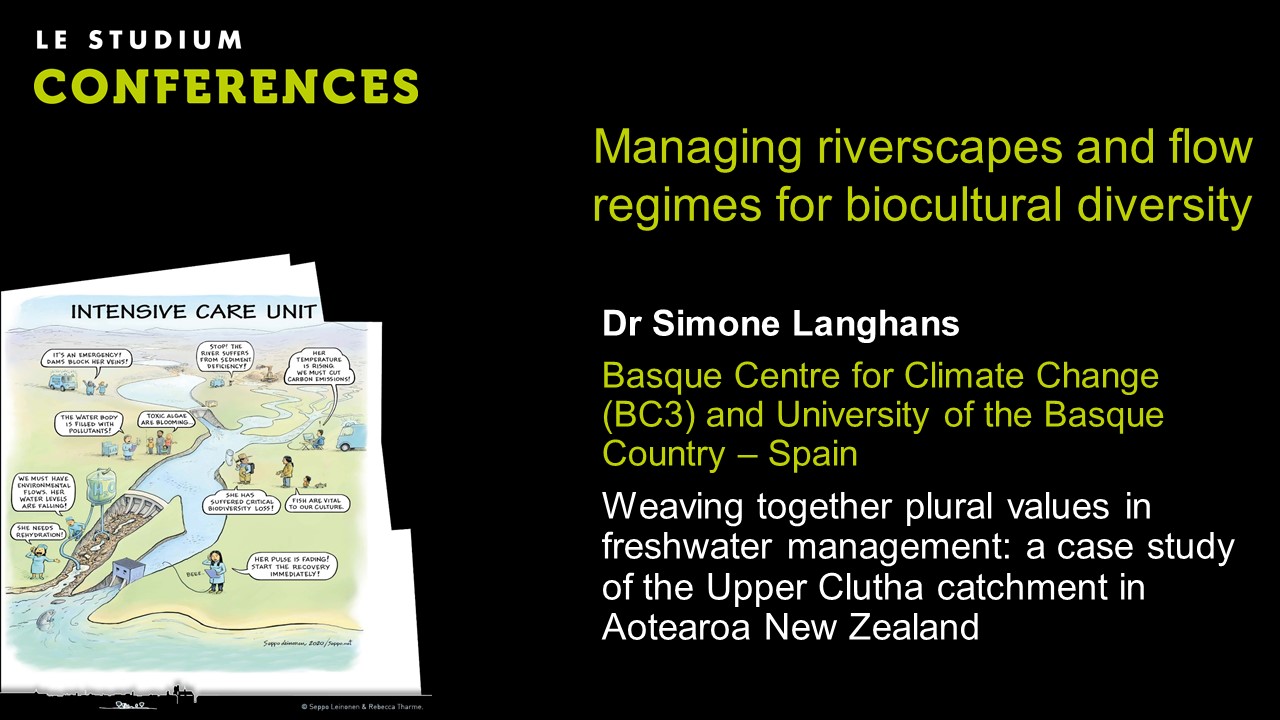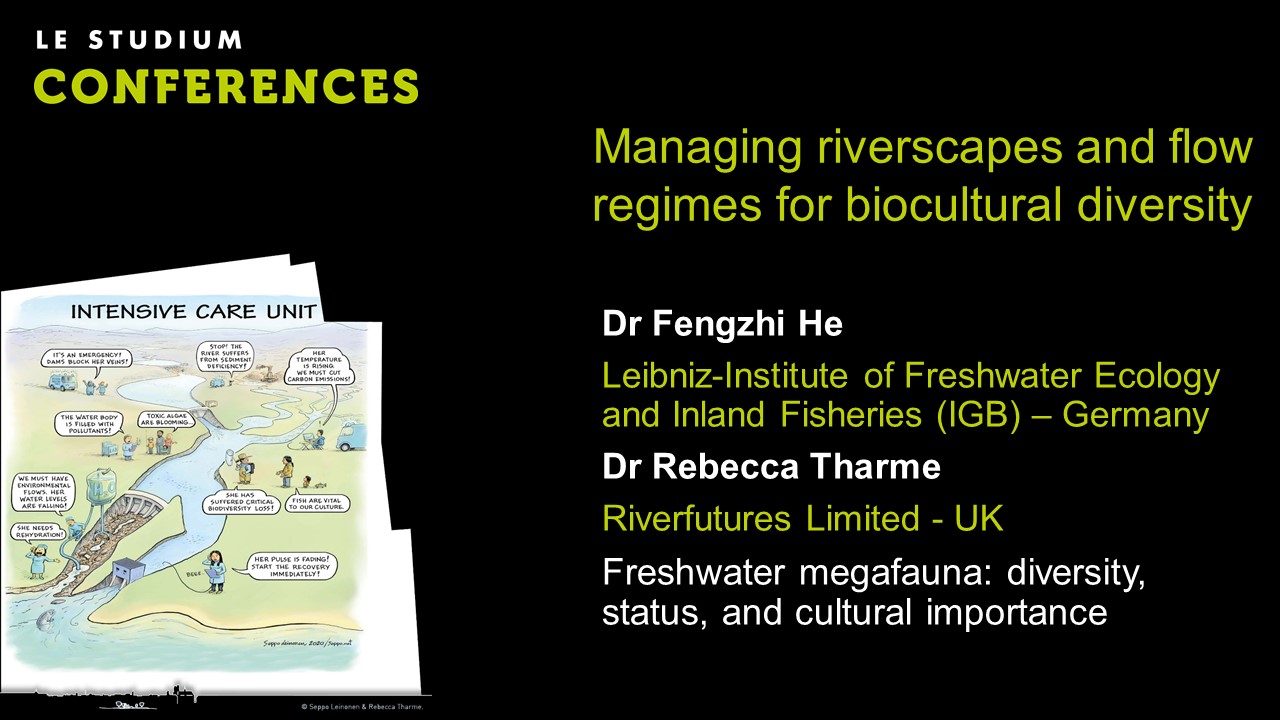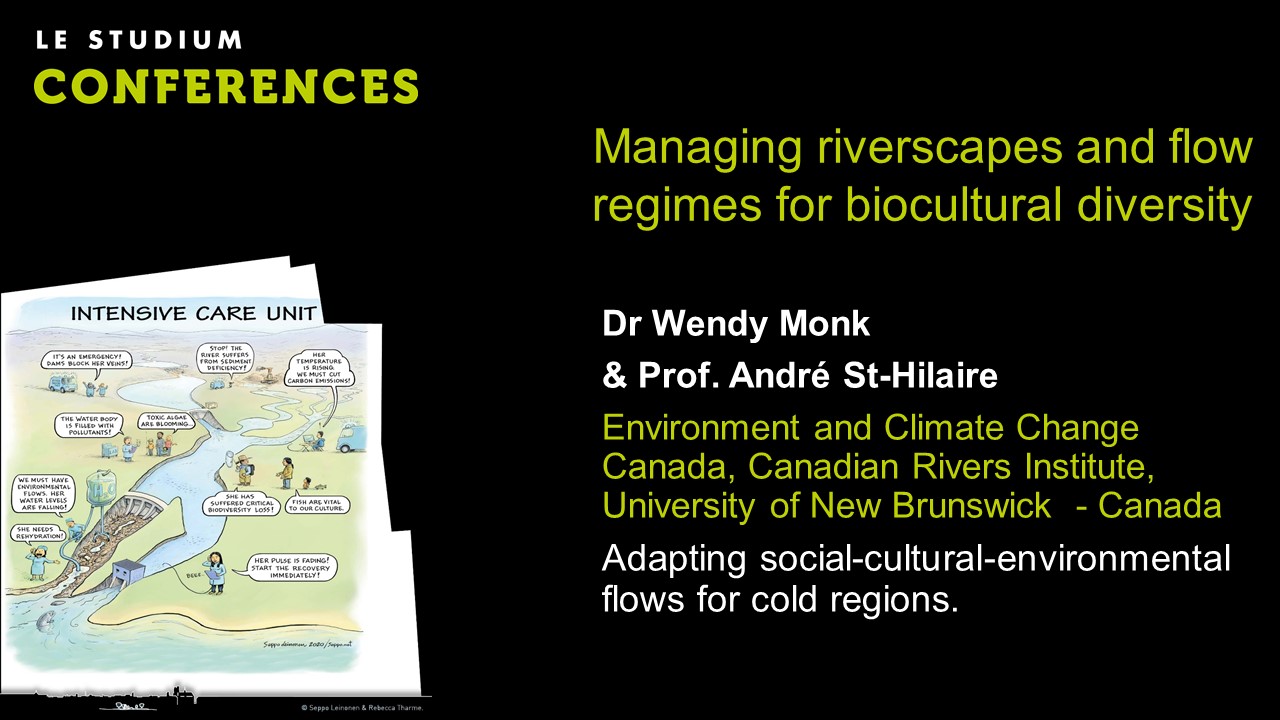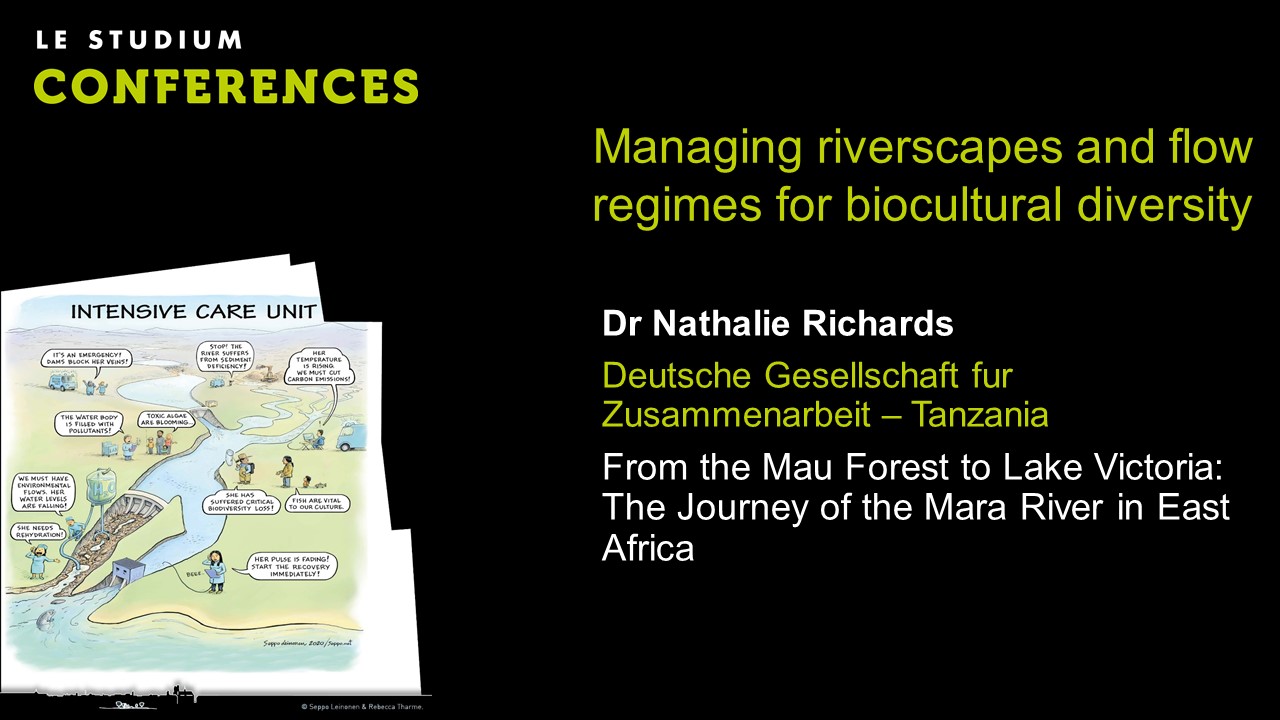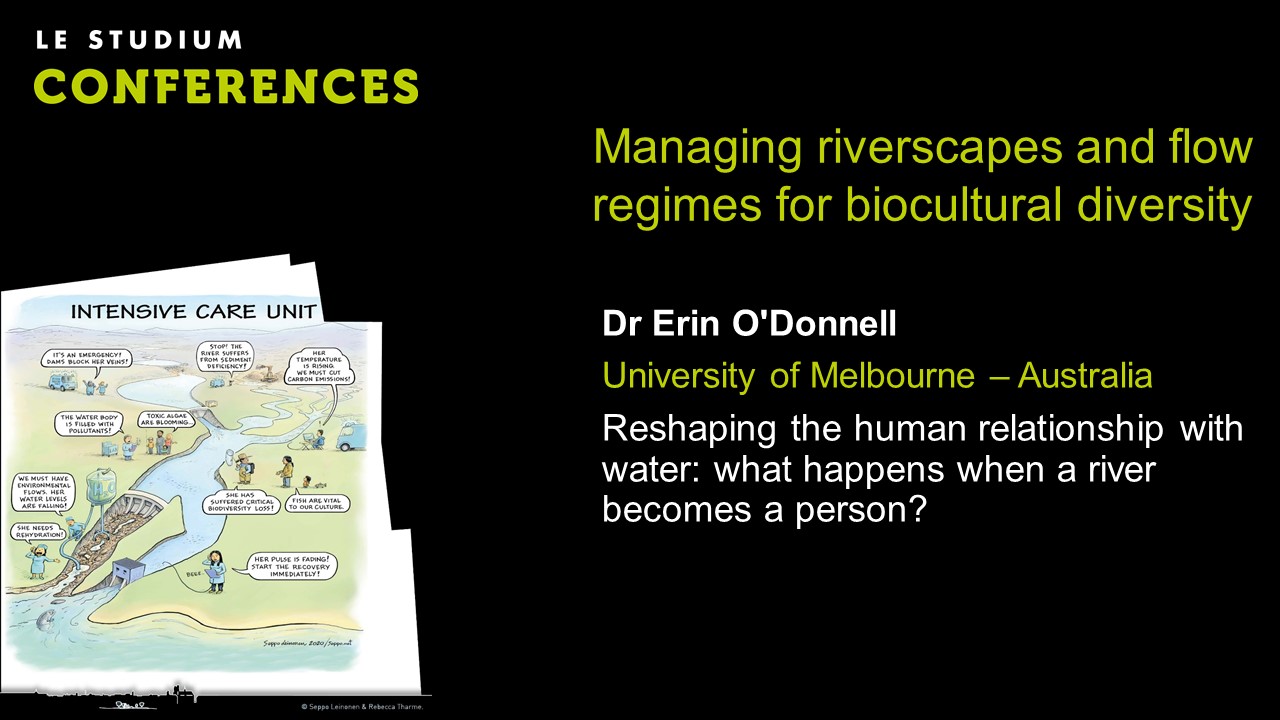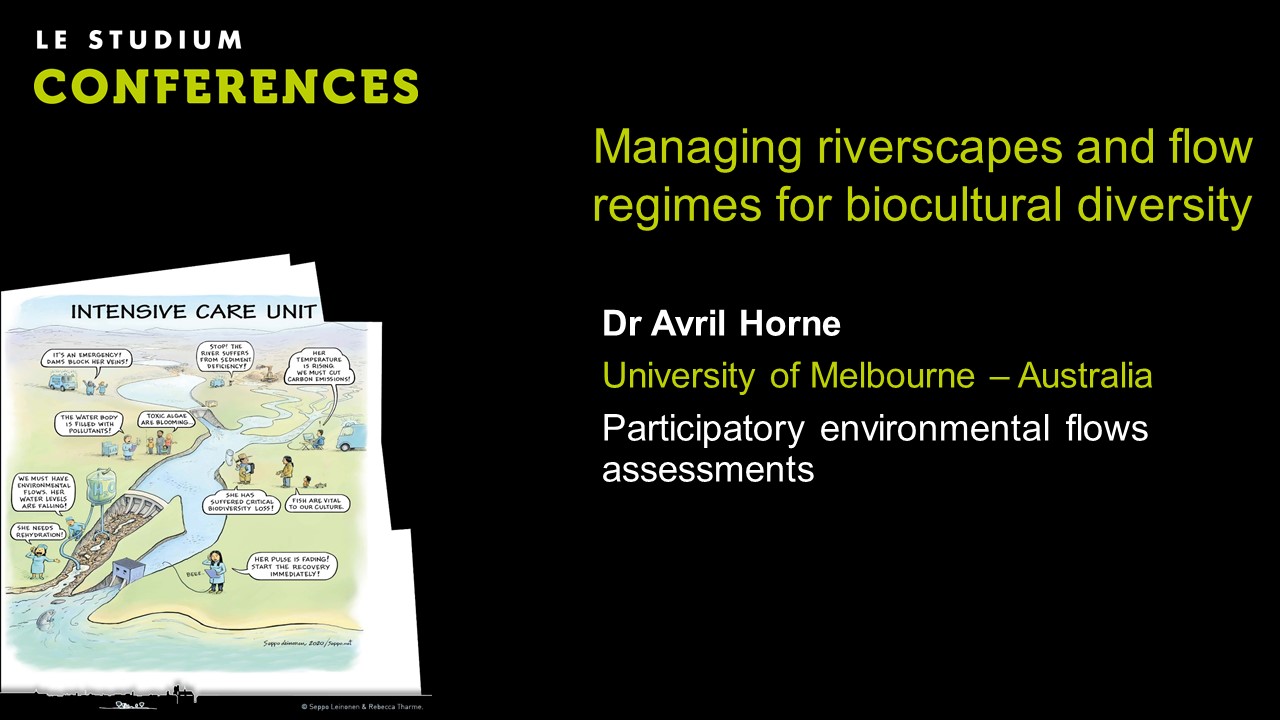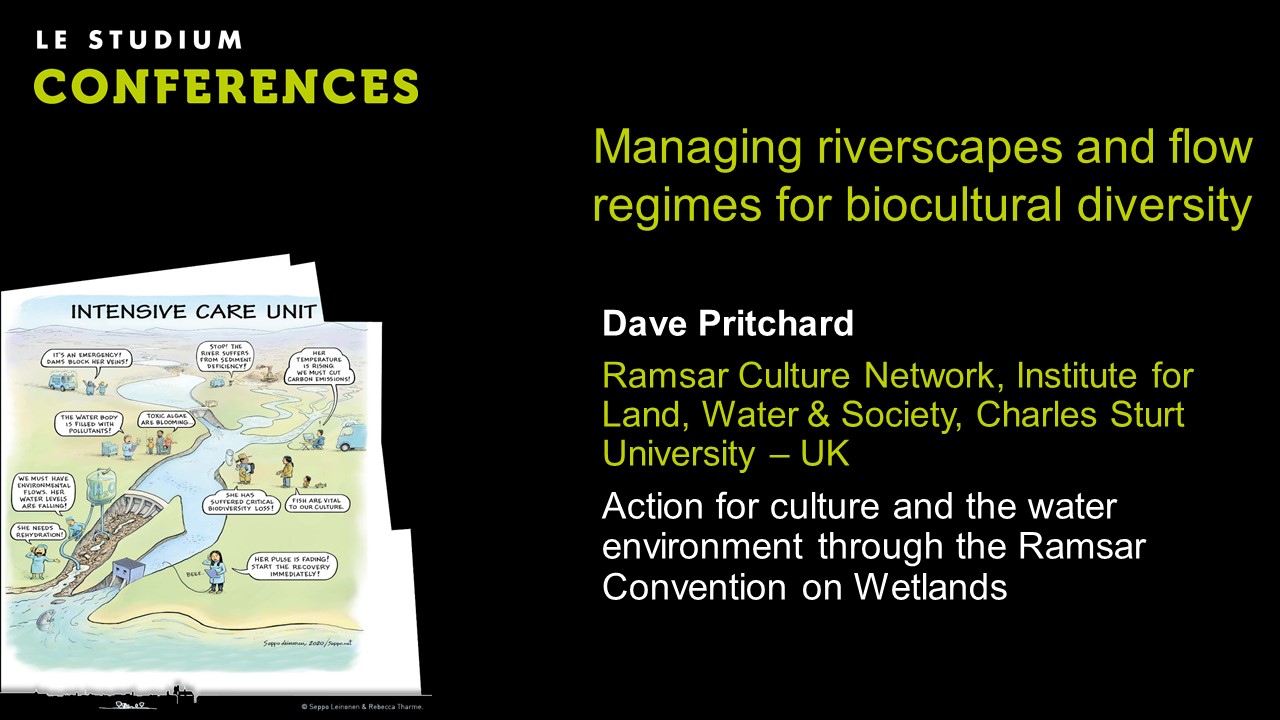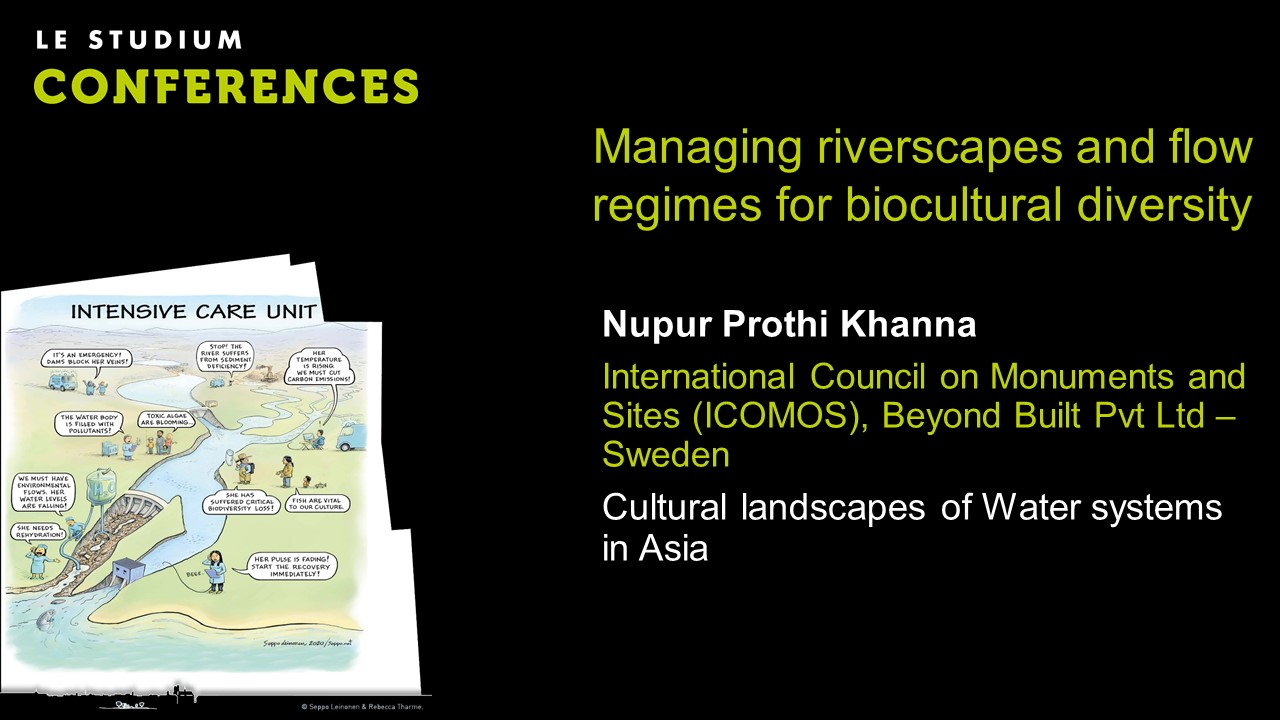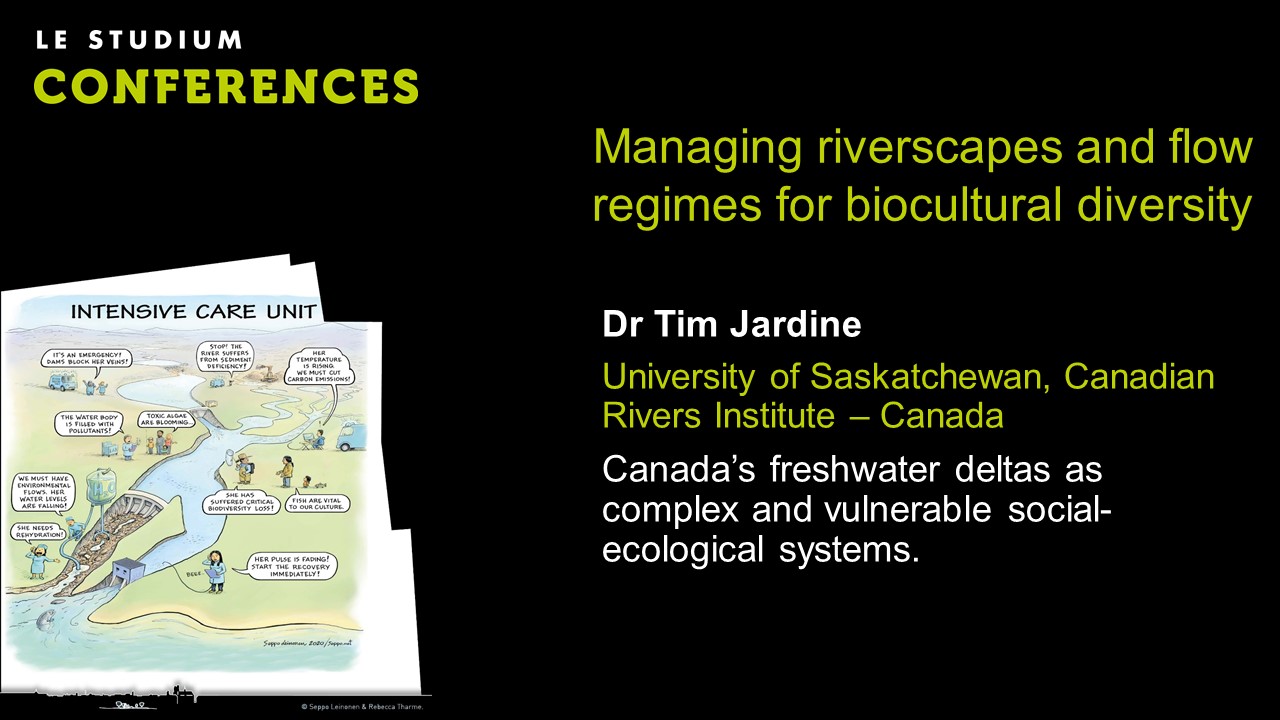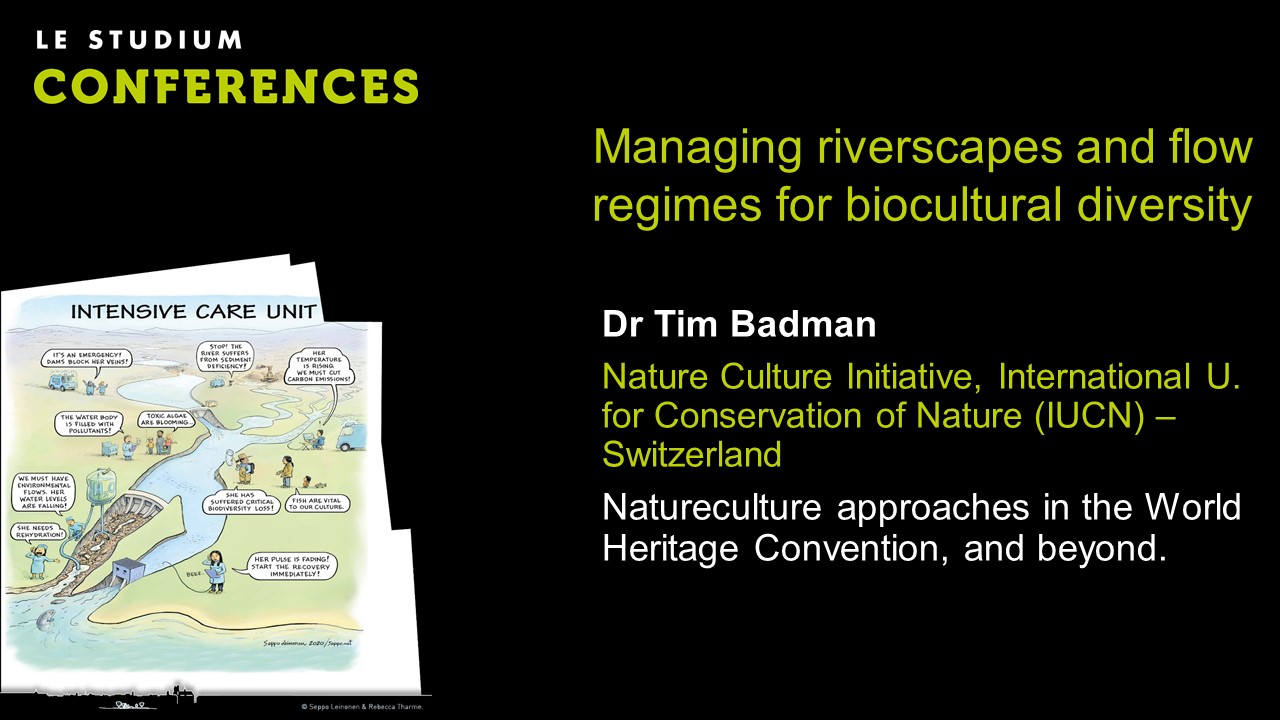Managing riverscapes and flow regimes for biocultural diversity
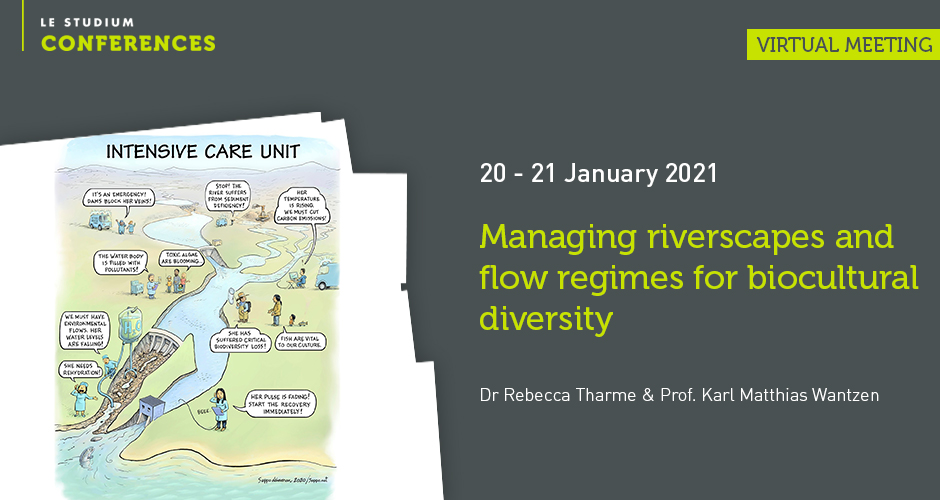
Descriptif
For millennia, people have been part of nature in riverscapes, coevolving with the living river systems that are the hearts of these environments. As well as being biologically diverse and resilient ecosystems, the world’s rivers have been paths for the evolution and adaptation of the cultural identity, material and spiritual wellbeing, and security of human civilizations. River flows continue to connect people, places, and wildlife today, inspiring and sustaining a myriad beliefs, values, services, and lifeways.
The conference will convene thought leaders, researchers, and practitioners working on different aspects of the conservation and management of biological and cultural diversity in river basins. They will explore the interlinkages between nature and culture in the context of the parallel global biological and cultural diversity crises, in particular focusing on river flow regulation and fragmentation with water infrastructure development.
Participants will share case studies, experiences, and insights with one another in a virtual informal setting, continuing to expand the global knowledge base. They will use this exchange to help lay out some of the elements of a high potential, policy relevant research agenda with global reach, to more effectively manage riverscapes and flow regimes for biocultural diversity. They will also identify promising opportunities to put key elements of this agenda into practice during the 2021-2030 UN decade on ecosystem restoration, including the partnerships, projects, and mechanisms needed.
Read more : http://www.lestudium-ias.com/event/managing-riverscapes-and-flow-regimes-biocultural-diversity
Vidéos
Prof. Angela Arthington - Progress with environmental flows to maintain healthy rivers and healthy …
The science and practical applications of environmental flows (e-flows) have advanced rapidly since the early 1980s. E-flows serve as a means to protect the flow regimes and ecosystems of
Prof. Karl Wantzen - Development(s) of the River Culture Concept
Rivers give rhythm to all life in their catchments. Floods and droughts trigger both, etho-physiological adaptations by biota, resulting in biodiversity, and one species, H. sapiens, resulting in
Dr Simone Langhans - Weaving together plural values in freshwater management: a case study of the U…
Public participation is an effective way to resolve the tensions between contested objectives, while maintaining ecological integrity. New Zealand is one of the few countries that takes a
Freshwater megafauna: diversity, status, and cultural importance
By Dr Fengzhi He and Dr Rebecca Tharme : Megafauna species play important ecological roles. Owing to their intrinsic characteristics such as large habitat requirements, long lifespan, and late
Adapting social-cultural-environmental flows for cold regions.
In northern regions, many rivers remain ice-covered for a period of three to six months and have two distinct low flow periods: mid-winter and mid to late summer.
Dr Nathalie Richards - From the Mau Forest to Lake Victoria: The Journey of the Mara River in East …
The Mara River starts its journey in the Mau forest in Kenya, flowing through diverse waterscapes and famous savannahs into Tanzania, where it reaches the Mara wetland system before spilling into
Dr Erin O'Donnell - Reshaping the human relationship with water: what happens when a river becomes …
Globally, the status of rivers in law is changing rapidly, as rivers themselves are beginning to receive legal rights. This growing transnational movement accelerated in 2017 with the recognition of
Dr Avril Horne - Participatory environmental flows assessments
Several of the key challenges to implementing environmental flows are related to the social and political context of environmental flows projects. These include community acceptance and buy in,
Dave Pritchard - Action for culture and the water environment through the Ramsar Convention on Wetl…
The intergovernmental Ramsar Convention on Wetlands celebrates its 50th anniversary this year. Its global treaty provisions and conservation policy frameworks have always been based on the best
Nupur Prothi Khanna - Cultural landscapes of Water systems in Asia
In this ‘SDG Decade of Action” we are aiming to facilitate a nature-culture orientation related to water wisdom with a focus on our young citizens. Traditional knowledge related to water has
Dr Tim Jardine - Canada’s freshwater deltas as complex and vulnerable social-ecological systems.
In north-western Canada, glacial retreat left behind large lakes that led to the development of three massive freshwater deltas (Peace-Athabasca, Slave and Saskatchewan). The productivity of these
Dr Tim Badman - Natureculture approaches in the World Heritage Convention, and beyond.
This paper will provide a review of work being undertaken to bring together the consideration of nature and culture in policies, programmes and practices of the World Heritage Convention, and a

